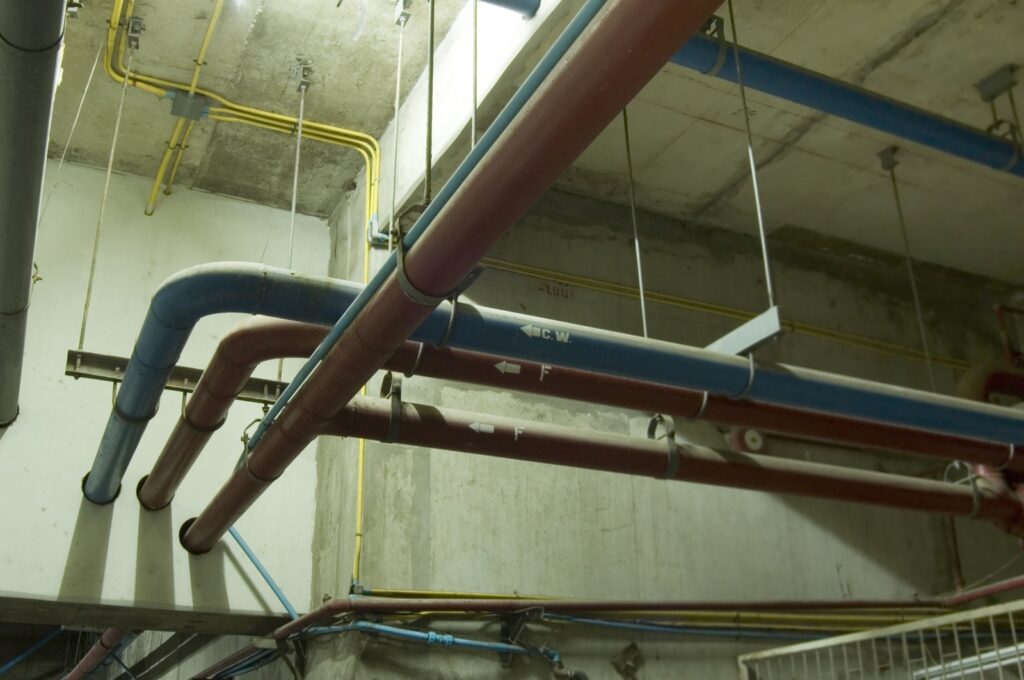Piping and Repiping: Modern Solutions for Plumbing
Modern piping materials and installation techniques have revolutionized residential plumbing systems, offering improved durability, water quality, and efficiency compared to older copper or galvanized steel pipes. Today’s options include PEX, CPVC, and copper, each providing distinct advantages for different applications throughout your home. Continue reading to explore how contemporary piping approaches can benefit your property and when repiping becomes a worthwhile investment.

Material Evolution
The plumbing industry has come a long way from lead pipes of ancient Rome. Today’s copper pipes offer reliability and antimicrobial properties, making them excellent choices for main water lines. PEX (cross-linked polyethylene) has gained tremendous popularity due to its flexibility, affordability, and resistance to freezing. CPVC (chlorinated polyvinyl chloride) provides chemical resistance and works well for hot water applications.
Each material brings specific strengths to your plumbing system. Copper remains the gold standard for longevity but requires professional installation and comes at a higher price point. PEX installs quickly, reduces condensation issues, and minimizes connection points where leaks might develop. Understanding these differences helps homeowners make informed decisions when planning plumbing projects.
Warning Indicators
Several signs suggest your home might benefit from repiping. Frequent leaks throughout the system indicate widespread deterioration rather than isolated issues. Discolored water – particularly rusty brown or yellowish tints – suggests internal pipe corrosion. Inconsistent water pressure, especially in older homes, often stems from mineral buildup inside pipes restricting water flow.
Water quality concerns present another compelling reason to consider repiping. Older galvanized pipes can leach zinc, lead, and other substances into your drinking supply. Modern materials eliminate these risks while improving taste and clarity. If your home dates back several decades with original plumbing intact, a professional evaluation can identify potential health and structural risks.
Behind The Walls
The repiping process involves several phases beginning with a comprehensive assessment of your current system. Professional plumbers create access points through walls and ceilings, working diligently to minimize disruption. They install new pipes alongside existing ones before making final connections and testing the system thoroughly.
A complete house repiping typically takes 2-5 days depending on home size and complexity. While this represents a significant project, skilled professionals can complete work with surprisingly minimal impact on daily life. Most homes maintain water service during evenings throughout the process, allowing for relatively normal household routines.
Investment Considerations
Repiping costs vary based on home size, pipe materials chosen, and local labor rates. While representing a substantial upfront investment, repiping delivers considerable long-term value. Updated plumbing systems prevent expensive emergency repairs, protect other home systems
from water damage, and eliminate gradual leaks that waste water and increase utility bills.
Many homeowners recover costs through improved property values and reduced insurance premiums. Contemporary plumbing materials carry warranties ranging from 25-50+ years, providing decades of reliable service. When viewed through this long-term lens, repiping becomes less a repair expense and more a valuable home improvement.
Partial Updates
Full-house repiping represents one approach, but strategic partial updates offer another option. Addressing high-priority areas like kitchens and bathrooms first allows for budget-friendly improvement while tackling the most vulnerability-prone sections. Main supply lines represent another critical focus area, as failures here cause disproportionate damage.
This incremental strategy creates immediate improvements for problematic areas while spreading costs over time. Professional plumbers can help prioritize sections based on visible deterioration, usage patterns, and potential risk factors. Even partial repiping substantially reduces emergency repair risks when strategically planned.
New Construction Choices
Building a new home provides the ultimate opportunity to implement ideal plumbing configurations. Hybrid systems combining different materials for specific applications represent the cutting edge of residential plumbing design. Copper main lines feeding into PEX distribution networks blend durability with flexibility while maximizing cost-effectiveness.
Thoughtful planning during construction eliminates future accessibility challenges. Strategic placement of shutoff valves, proper pipe sizing, and logical layout significantly reduce maintenance complications over decades of homeownership. These early-stage decisions yield tremendous long-term benefits with minimal additional construction costs.
Expert Assistance
When plumbing systems show signs of age or performance issues, professional evaluation provides clarity and peace of mind. Acme Plumbing offers comprehensive piping and repiping services throughout Durham, NC, with transparent pricing and warranty-backed workmanship. Our approach emphasizes durable materials, proper installation techniques, and minimally invasive procedures to protect your property. Call (919) 688-1348 today to schedule your plumbing assessment and discover how modern piping approaches can improve your home’s performance and value.
